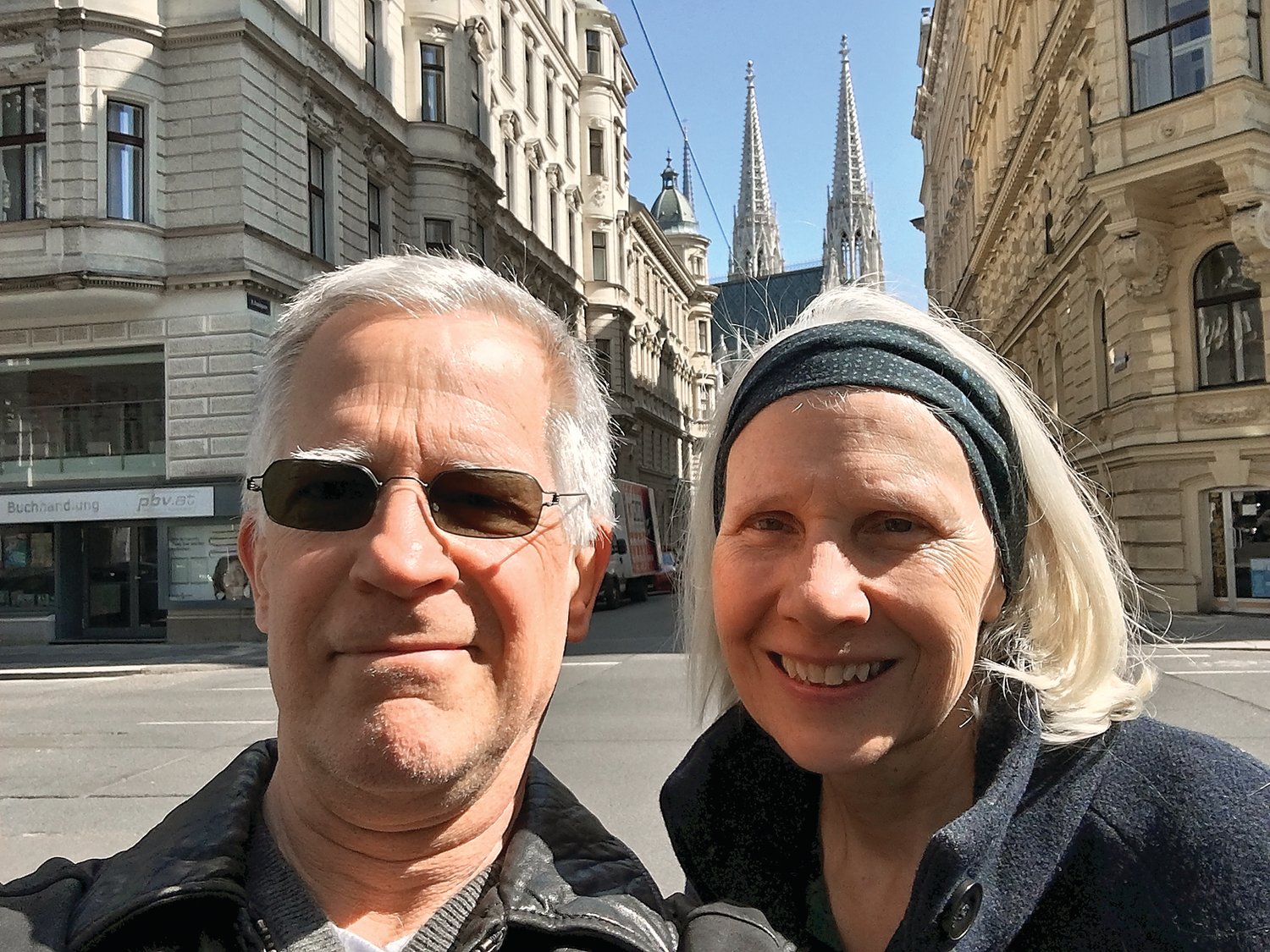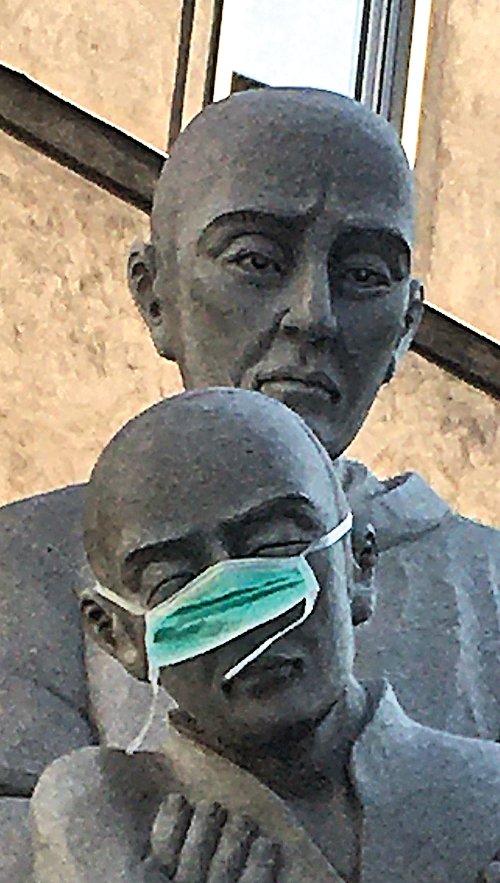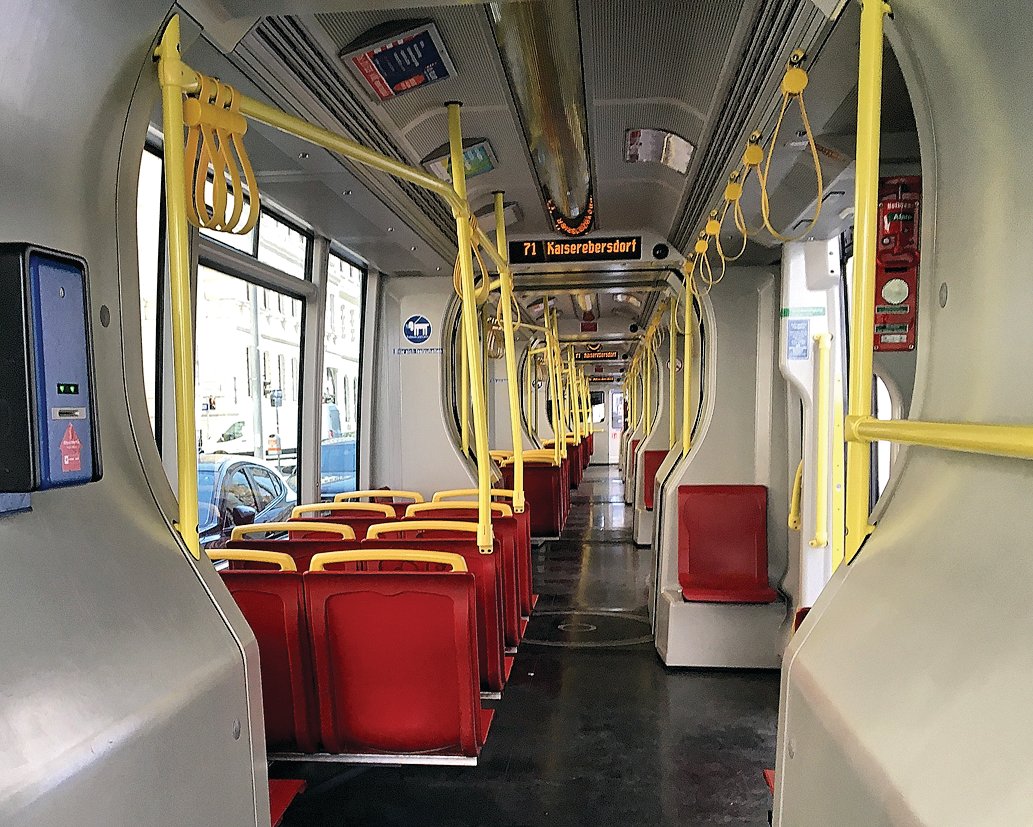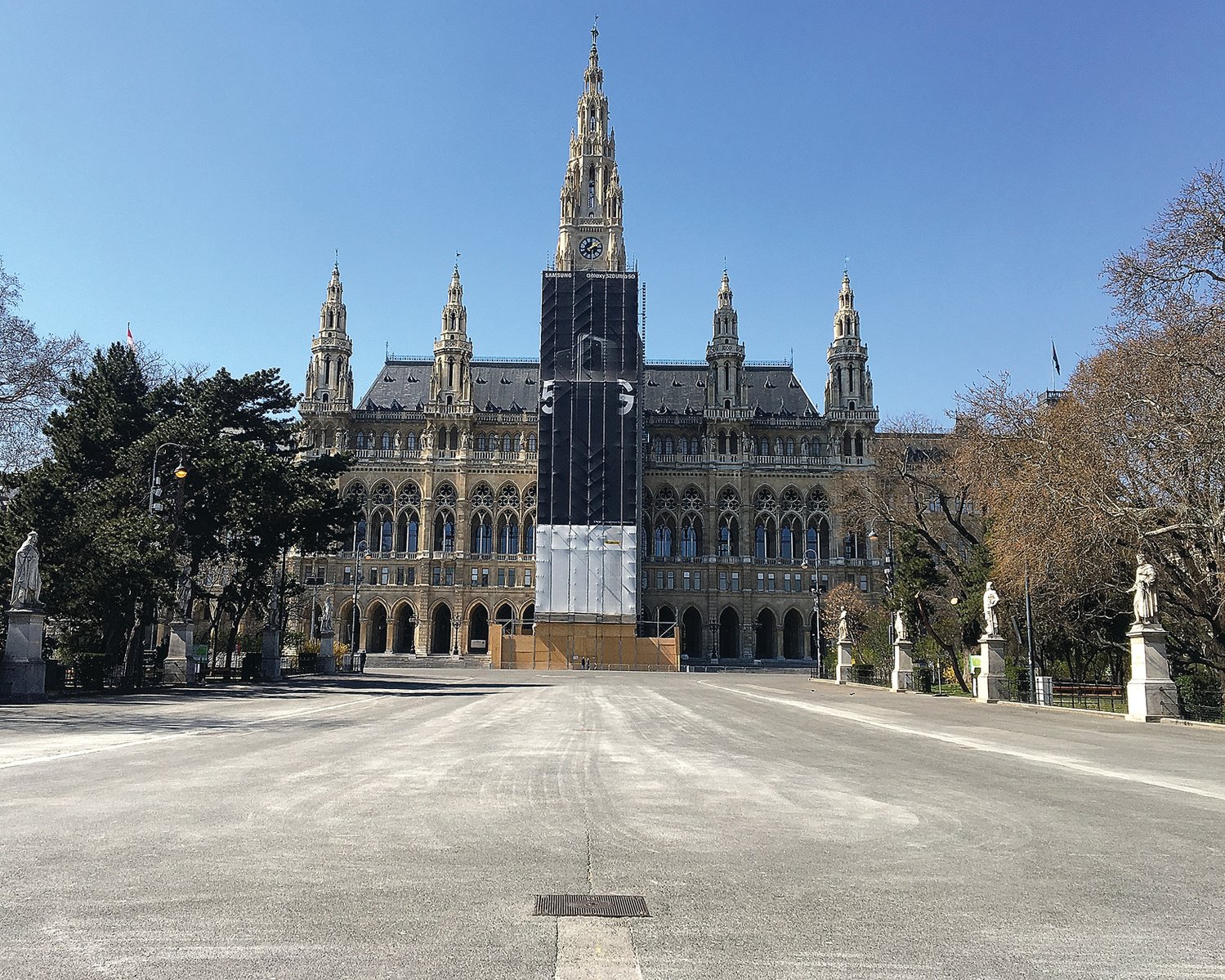A message for our readers
The Galena Gazette is providing all of its news stories and photos of the COVID-19 pandemic with no payment required as a public service and in an effort so you can be totally knowledgeable as to how the pandemic affects you. Please consider a print or online subscription to support this vital reporting by a locally owned business .
Getting to that someday list: Galena High School grad Tom Richardson hunkers down in Vienna during the COVID-19 pandemic
VIENNA, Austria–“Now is the time,” 1976 Galena High School graduate Tom Richardson says from his apartment in Vienna, Austria.
He’s talking about that “Going to get to that” pile of books he’s been intending to read and do for many years. Now that the COVID-19 pandemic is engulfing Vienna and the rest of Europe, he suddenly finds time to catch up on all of that reading.
Richardson and his wife, Christina Iverson, have carved out a life for themselves in Vienna. Their flat is just a few blocks from the Danube River. He works for the International Monetary Fund and is director of the organization’s Joint Vienna Institute, which provides training courses for countries in central, eastern and southeastern Europe, and central Asia.
Just as in Illinois and other parts of the world, Richardson and Iverson are following stay-in-place orders in Vienna. They can go out for a walk or ride their bikes, but after an afternoon ride along the Danube with sidewalks filled with people, they have now chosen to walk first thing in the morning when the sidewalks are empty.
Most businesses are closed with the exception of pharmacies, supermarkets and banks. Masks are now required to enter supermarkets.
Most businesses are closed, including the Joint Vienna Institute. Richardson and his colleagues are working from home. Although not teaching classes, they are doing research, preparing for new courses and developing ways to use existing technologies to teach classes in the future.
Richardson said he had to venture to his office to prepare visa paperwork for a colleague. He rode his bike there at 11 a.m. on a Tuesday. Instead of the hustle and bustle of city streets, he found the city eerily quiet as if it was a normal Sunday morning at 7 a.m.
He says Austrian authorities are taking the COVID-19 threat seriously.
An economist by training, Richardson is worried about how shutting down Austria’s economy is going to impact small businesses. He said that there is a social safety net for workers.
“Here,” he says, “a worker can be put on ‘short work’ and maybe work 10 percent of what they were doing and yet get 80-90 percent of their salary. The government picks up the difference and keeps people from losing their jobs.”
Although he’s isolated from his colleagues, Richardson says that he and his wife may be more connected to friends who live throughout the world. They’ve been sharing time through video chats and even a video happy hour.
“It’s pretty cool,” he says.
They’ve also been trying new recipes. Christina made a fava bean dip. Richardson is determined to make a pilaf with spelt, otherwise known as dinkel wheat or hulled wheat.
All of this forces them to root through their pantry and exhaust current supplies. Richardson plans to retire in late August. The couple will return to their home in Chevy Chase, Md., and then spend summers at their cottage in Idaho near the Canada border.
And, then there’s that list of books he’s been wanting to read. There’s “The Hungry Tide” and “Gun Island” by Indian author Amitav Ghosh. He’s also read Scott Simon’s book, “Home and Away.”
Richardson notes, “Scott is a Bears, Cubs and Bulls fan. . .a long-suffering Cubs fan.” Richardson says he relates to the book.
There is one downside to all of this. Richardson and Iverson had made plans for side trips this spring and summer as their days in Vienna began to wind down.
Wistfully, Richardson says, “I think from time to time how in central Europe during World War II that Jews hid in attics for years in order to survive. They experienced much greater risks and consequences than we do with COVID-19. If they could make it, I think we can survive this.”
 Fair, 46.0° F
Fair, 46.0° F








